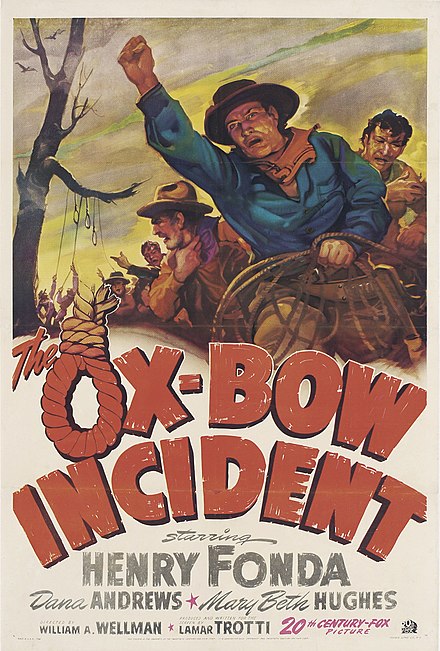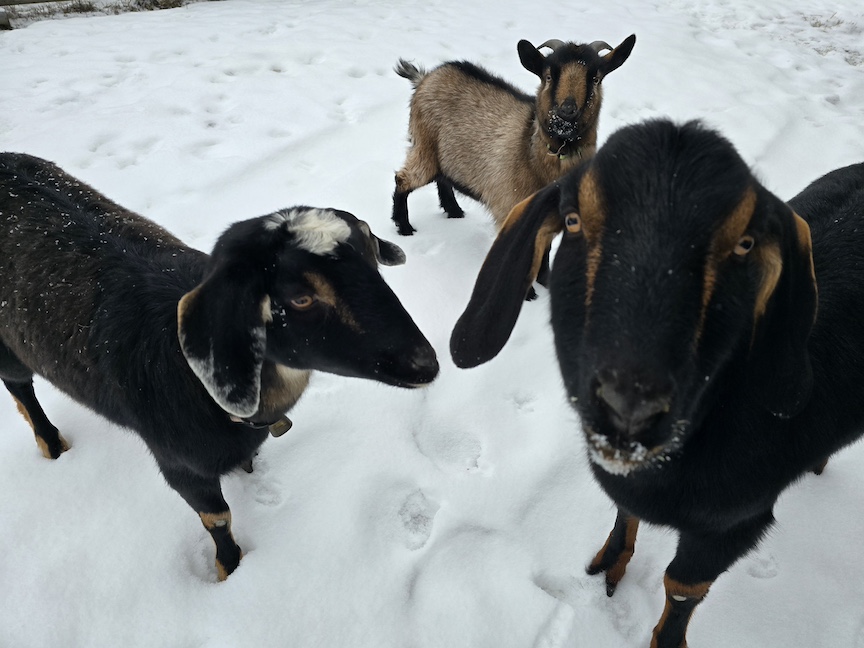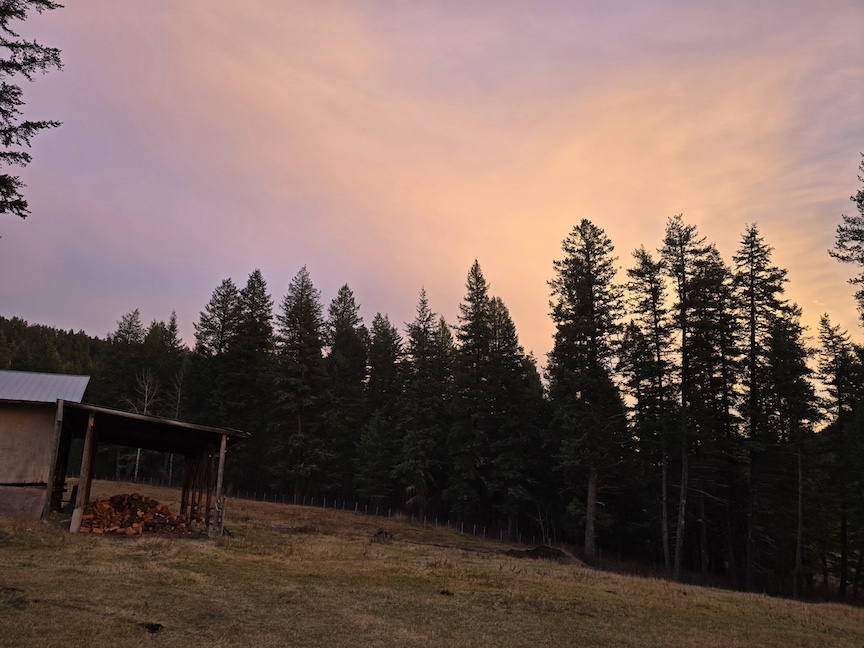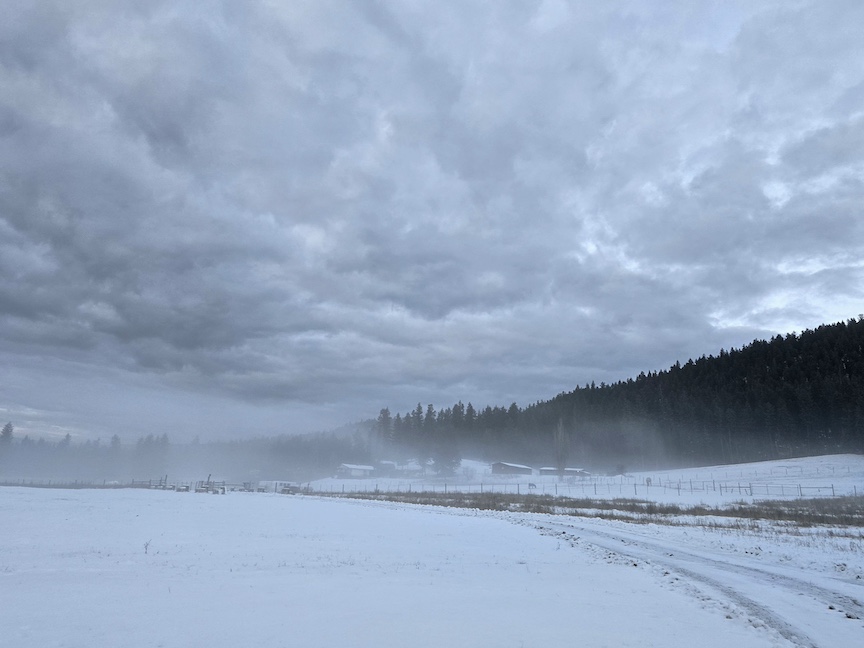Starring: Henry Fonda, Harry Morgan, Dana Andrews
Director: William A. Wellman
Released: 1942
Mood: If you’re hungry for a gorgeously shot and intelligent Western that won’t make you happy because it’s hauntingly similar to current events.
“Law is a lot more than words you put in a book, or judges or lawyers or sheriffs you hire to carry it out. It’s everything people ever have found out about justice and what’s right and wrong. It’s the very conscience of humanity.”
– Donald Martin (Dana Andrews)
I have a confession: I slept on The Ox-Bow Incident for months. MONTHS!
My mom found the DVD at her local library and loaned it to me in December. Tomorrow it will be March. I am a terrible Western fan. Why didn’t I watch it until now? Well, the DVD cover is boring, the title is boring, and I’m not yet super jazzed about Henry Fonda. But that’s no excuse.
I’d like to publicly apologize for this heinous crime against my mom’s library card, and against the masterpiece that is The Ox-Bow Incident.
And trust me, this movie is a f*cking MASTERPIECE.
I don’t get why everyone talks about High Noon yet I’ve never read anywhere that THIS is a must-see Western. Nothing against High Noon. But I’d say The Ox-Bow Incident is so good that it should be required viewing.
It’s got that hauntingly dark Lord of the Flies-type plot that at first you think is old and exaggerated, until you realize it’s frighteningly relevant to where we’re at right now. Since I don’t see this on any of those ‘best Western movies’ or ‘movies to see before you die’ lists, I’ll say it myself right here and now: You absolutely have to see The Ox-Bow Incident.

The decidedly un-boring original movie poster (Wikipedia)
The Ox-Bow Incident takes place in 1885 Nevada, and is based on Walter Van Tilburg Clark’s 1940 book by the same name.
A couple of drifters named Gil (Henry Fonda) and Art (Harry Morgan) ride into the dusty town of Bridger’s Wells and visit the saloon. News arrives that a local rancher has been found murdered. The sheriff is out of town, so a posse is quickly formed of angry ranchers. They’re ready to ride out and hang the man suspected of doing it, despite the judge’s insistence that they bring him back for a trial. The drifters mostly watch with concern.
A lot of time is spent debating whether or not it’s okay to hang a murderer and whether justice actually works. I mean a LOT of time.
I didn’t read anything about this movie before watching it, so at first I thought it was simply an interesting change of pace from the typical shoot-em-up Western of the ‘40s and ‘50s. I can’t recall ever seeing another scene go on that long involving so many minor characters.
The rest of The Ox-Bow Incident follows the posse as they ride out, find a group of men camped in the Ox-Bow Canyon with presumably stolen cattle from the murdered rancher, and spend a long night in heated arguments over whether or not they’ll go through with the lynching.
![]()
Fonda is good. Harry Morgan is good. But Dana Andrews as the accused Donald Martin is absolutely f*cking brilliant. Despite only being introduced halfway through the film, he instantly grabs your attention.
Prior to the posse finding Martin and his two companions, it’s a lot of angry ranchers and a macho military Major arguing with a fair and practical old judge. You get to hear many viewpoints, but you aren’t yet invested in whether they find the murderer or hang anyone. It’s Andrews’ performance that injects a horrible, too-real level of humanity and emotion into a story that you realize with a sinking feeling is going to have a horrible, too-real ending.
Andrews started his career on stage, and returned to theatre in his later years. You can feel it in the way he uses every moment and every muscle to tell his character’s story, so that you forget everyone else in a scene.
The rest of the acting is solid as well, from the bit parts through every main character. It’s still a ‘40s script, so the dialogue feels a bit fake at times and you get that overly theatrical acting that was common in ‘40s and ‘50s films. But I quickly stopped noticing once I got caught up in the story.
Other performances of note:
- Fonda starts out at a 10 as an angry, joyless bruiser in the saloon, and there isn’t really anywhere to go from there; he still manages to squeeze a bit more intensity into a later monologue, which all makes sense given his personal connection with the story
- Anthony Quinn is outstanding as Juan, once he actually gets some lines; you can feel his talent bubbling under the surface of this nonchalant doomed man, and it’s like GIVE THIS MAN A BIGGER ROLE – go watch him with Kirk Douglas in Last Train from Gun Hill
- Ma Grier is an unconventional (for the time) and commanding female rancher and lynch-happy posse member, played well by Jane Darwell in just about the furthest cry you can get from her turn as the sad-sweet tuppence bird woman from Mary Poppins
- If you’re paying attention, you’ll spot Margaret Hamilton aka The Wicked Witch of the West, uncredited as the Major’s housekeeper
![]()
The Ox-Bow Incident holds an unforgiving mirror to society, and part of the reason it’s able to do that so well is the cinematography. Holy shit, is it ever beautiful – especially given the technology at the time.
The scenic shots following the posse on their ride are gorgeous, and easily hold up to modern Westerns. There’s this one shot where the last riders of the group are being swallowed up by the dust from the horses ahead, and you think of how hard it would have been to play so perfectly to the limitations of black and white plus the environmental lighting.
In one of the later scenes, where the group is voting on the final outcome, the lighting on the small cluster of anti-lynchers is so flawless that I felt like clapping.
And I don’t usually get excited about cinematography! So if I noticed it, it must be f*cking phenomenal.
The Ox-Bow Incident, which BTW is Clint Eastwood’s favourite film, was deservedly nominated for the 1943 Best Picture Oscar, but lost to Casablanca.
It also went through hell before even being released – Fox didn’t know how to market it, because it was so darkly political. The industry censor had a specific list of requirements in order to approve the script, such as more clearly and loudly depicting the fallout from the lynch mob’s actions.
Remember how I said Fonda had a personal connection with the story? He actually witnessed the horrific lynching of Will Brown as a teenager, during the 1919 Omaha race riot, which is why he wanted so badly to be a part of this movie and why it was one of few roles he cared about at that time in his career.
And it’s a GREAT movie. It definitely arrived in the top ranks of my Western list. Not for the usual reasons, but because it’s such a powerful story.
If you look at what’s going on right now, lynch mob justice hasn’t gone away or even got better. It’s not an Old West thing. It’s here and now and it successfully invaded the U.S. Capitol.
Normally I wouldn’t want to watch a movie about how shitty humans continue to be. Movies are my time away from reality. But sometimes you have to let it in. You have to look at all this shittiness, to remember why it’s important to stand up for what’s right and help build a less shitty future.


